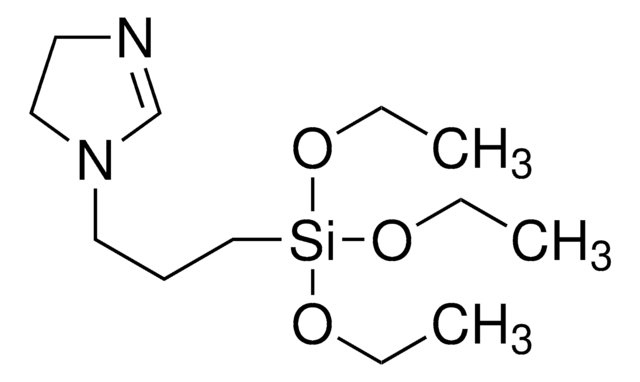87249
Tetradodecylammonium bromide
≥99.0% (AT)
Synonym(s):
Tetralaurylammonium bromide
About This Item
Recommended Products
Quality Level
Assay
≥99.0% (AT)
form
crystals
impurities
≤0.5% water
SMILES string
[Br-].CCCCCCCCCCCC[N+](CCCCCCCCCCCC)(CCCCCCCCCCCC)CCCCCCCCCCCC
InChI
1S/C48H100N.BrH/c1-5-9-13-17-21-25-29-33-37-41-45-49(46-42-38-34-30-26-22-18-14-10-6-2,47-43-39-35-31-27-23-19-15-11-7-3)48-44-40-36-32-28-24-20-16-12-8-4;/h5-48H2,1-4H3;1H/q+1;/p-1
InChI key
SMEFTBPJZGVAPK-UHFFFAOYSA-M
Related Categories
General description
Application
Signal Word
Warning
Hazard Statements
Precautionary Statements
Hazard Classifications
Eye Irrit. 2 - Skin Irrit. 2 - STOT SE 3
Target Organs
Respiratory system
Storage Class Code
11 - Combustible Solids
WGK
WGK 3
Flash Point(F)
Not applicable
Flash Point(C)
Not applicable
Personal Protective Equipment
Choose from one of the most recent versions:
Already Own This Product?
Find documentation for the products that you have recently purchased in the Document Library.
Customers Also Viewed
Our team of scientists has experience in all areas of research including Life Science, Material Science, Chemical Synthesis, Chromatography, Analytical and many others.
Contact Technical Service












